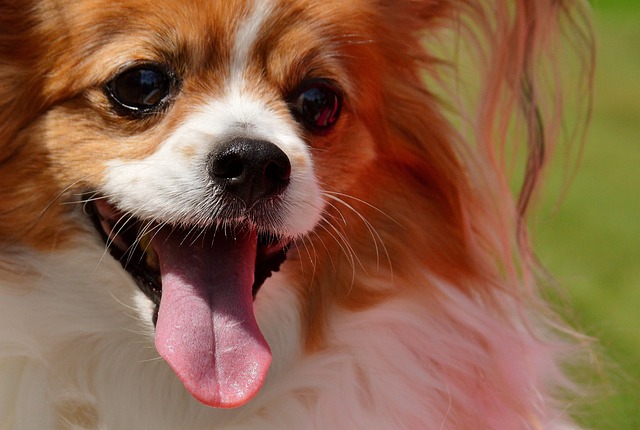Have you noticed your Chihuahua wheezing? You’re not alone because many Chihuahua owners face with this issue. In this post, we’ll cover the possible causes of Chihuahua wheezing, how to diagnose it, and the treatment options. By the end of this, you’ll know what to do to keep your furry friend healthy and happy.

What is Wheezing in Dogs?
Wheezing in dogs (including Chihuahuas) is a high pitched whistling sound that occurs when your dog breathes, usually on exhalation. This sound is caused by air passing through narrowed or obstructed airways. Wheezing can be intermittent or chronic and may be accompanied by other symptoms like coughing, laboured breathing or nasal discharge.
There are many reasons why your Chihuahua might be wheezing. Knowing the underlying cause can help you take action. Here are some common causes of Chihuahua wheezing:
Allergies in Chihuahuas
Just like humans, Chihuahuas can have allergies. Common allergens are pollen, dust mites, mould and certain foods. When a Chihuahua is exposed to an allergen their airways can become inflamed which can cause wheezing. This inflammation makes it hard for air to pass through the narrowed airways and produce the wheezing sound. Allergies in Chihuahuas can also cause itchy skin, sneezing and watery eyes. Managing these allergies involves identifying and avoiding the allergens and possibly administering antihistamines or other medication prescribed by your vet.
Asthma
Asthma in dogs (including Chihuahuas) is a chronic condition that can cause wheezing, coughing and laboured breathing. Asthma attacks are often triggered by allergens, stress or exercise and the symptoms can range from mild to severe. When a Chihuahua with asthma breathes in an irritant their airways can become inflamed and constricted and they can’t breathe. This condition requires management, often with medication like bronchodilators and steroids to keep the airways open and reduce inflammation. Regular vet checks are essential to monitor and adjust treatment as needed.
Respiratory Infections
Infections like kennel cough, pneumonia or bronchitis can cause significant inflammation in the respiratory tract and cause Chihuahua wheezing. These can be bacterial, viral or fungal in nature and often come with other symptoms like coughing, nasal discharge and lethargy.
Kennel cough is highly contagious and can spread quickly among dogs in close quarters. Treatment for respiratory infections involves antibiotics for bacterial infections, antifungal medication for fungal infections and supportive care to help your Chihuahua recover. Get your dog to the vet as soon as possible if you suspect they have a respiratory infection.

Collapsed Trachea
Chihuahuas are more prone to tracheal collapse where the windpipe becomes weak and flat. This causes breathing difficulties and a wheezing sound especially during excitement, exercise or eating. Tracheal collapse happens when the cartilage rings that support the trachea becomes weak and cannot hold the shape of the trachea. This can be mild or severe and in severe cases it can greatly affect a Chihuahua’s quality of life. Treatment options are weight management, medication to reduce inflammation and coughing and in severe cases surgery to provide structural support to the trachea.
Heart Disease
Some heart conditions can cause fluid to accumulate in the lungs and your Chihuahua will wheeze. Congestive heart failure for example can cause the heart to pump inefficiently and fluid to accumulate in the lungs (pulmonary edema). This fluid makes it hard for your Chihuahua to breathe and can cause wheezing, coughing and lethargy. Heart disease in Chihuahuas can also present with symptoms like a swollen belly, decreased appetite and exercise intolerance. Managing heart disease involves medication to support heart function and reduce fluid accumulation and lifestyle changes to keep your Chihuahua comfortable and healthy.
Obstructions
Foreign objects or growths such as tumors in the airway can obstruct breathing and cause Chihuahua wheezing. Chihuahuas are curious and may accidentally inhale small objects which can get stuck in their airways. Tumors or polyps whether benign or malignant can also grow in the respiratory tract and cause partial or complete obstruction. These obstructions can cause sudden and severe wheezing and requires immediate veterinary attention. Treatment depends on the type of obstruction but may involve removing the foreign object or surgically excising the growth. Early detection and intervention is key to prevent complications and to let your Chihuahua breathe comfortably.
How to Diagnose Chihuahua Wheezing
Diagnosing the cause of wheezing in your Chihuahua involves a physical examination by a vet. Here’s what to expect:
Physical Examination
The vet will start with a physical exam, listen to your Chihuahua’s heart and lungs with a stethoscope and check for any signs of respiratory distress.
Medical History
Tell the vet about your Chihuahua’s medical history. Any recent changes in your dog’s environment, diet or behavior?
Diagnostic Tests
These tests may be done to confirm the diagnosis:
- X-rays: To see abnormalities in the chest and airways.
- Blood Tests: To check for infections or allergies.
- Bronchoscopy: Insertion of a small camera into the airway to look for obstructions or structural issues.
- Allergy Testing: To check if it’s an allergy.
How to Treat Chihuahua Wheezing
Treatment for Chihuahua wheezing depends on the cause. Here are some options:
Medications
Medications are usually the first choice for Chihuahua wheezing. Antihistamines can be used to treat allergies by blocking the histamines that cause inflammation and wheezing. Steroids are prescribed to reduce inflammation in the airways so your Chihuahua can breathe easier. Antibiotics are needed for bacterial infections that can cause respiratory issues. For Chihuahuas with asthma, bronchodilators are used to open up the airways so they can breathe better and wheeze less. Each of these medications must be prescribed and monitored by a vet to make sure you get the right dose and to watch for side effects.

Environmental Changes
Changing your Chihuahua’s environment can help reduce wheezing. Using air purifiers in your home removes allergens like pollen, dust mites, and mold from the air so your dog can breathe easier. Regular cleaning is key to keeping your home dust and mold-free, which are common wheezing triggers. Identifying and avoiding specific triggers like certain foods, plants or chemicals, can prevent allergic reactions. This proactive approach minimizes exposure to irritants and allergens that can cause or worsen wheezing.
Weight Management
Weight management is crucial for Chihuahuas that wheeze. Extra weight puts extra pressure on the respiratory system making it harder for your dog to breathe. Working with your vet to create a balanced diet and exercise plan for your Chihuahua can help them achieve and maintain a healthy weight. This reduces the strain on their respiratory system and overall well being and reduces the frequency and severity of wheezing episodes.
Surgery
In cases where wheezing is caused by structural issues like tracheal collapse or tumors, surgery may be needed. Tracheal collapse can sometimes be treated with surgery to reinforce the trachea and keep it open. Tumors or growths in the airway may need to be surgically removed to allow for normal breathing. These are usually considered when other treatments have failed or when the structural issue is life threatening to the Chihuahua. Post surgical care and monitoring by a vet is crucial to ensure a smooth recovery and to watch for complications.
Stopping Wheezing in Chihuahuas
Stopping wheezing is all about managing your Chihuahua’s overall health and reducing exposure to triggers. Here are some tips:
Regular Vet Visits
Regular vet visits can catch and treat health issues before they become serious. Get your Chihuahua to the vet and get them vaccinated.

Healthy Food
Feed your Chihuahua a balanced diet to strengthen their immune system and reduce allergies and respiratory problems.
Exercise
Regular moderate exercise will keep your Chihuahua at a healthy weight and improve their respiratory health.
Avoid Smoke and Pollution
Keep your Chihuahua away from cigarette smoke and other pollutants that can irritate their airways.
When to See a Vet
If your Chihuahua’s wheezing is persistent, severe or with other symptoms like coughing, lethargy or loss of appetite, you should see a vet. Immediate vet attention is critical if your Chihuahua is having trouble breathing as this is a life-threatening emergency.

READ ALSO: How Rare are Brindle Chihuahuas? Things To Know
Chihuahua Wheezing: Conclusion
Chihuahua wheezing can be scary but with the right knowledge and vet care you can manage and treat this condition. By understanding what causes Chihuahua wheezing, how to diagnose it and the treatment options available you can take proactive steps to keep your furry friend healthy and comfortable. Remember, regular vet visits and a healthy lifestyle is key to preventing and managing wheezing in Chihuahuas.

